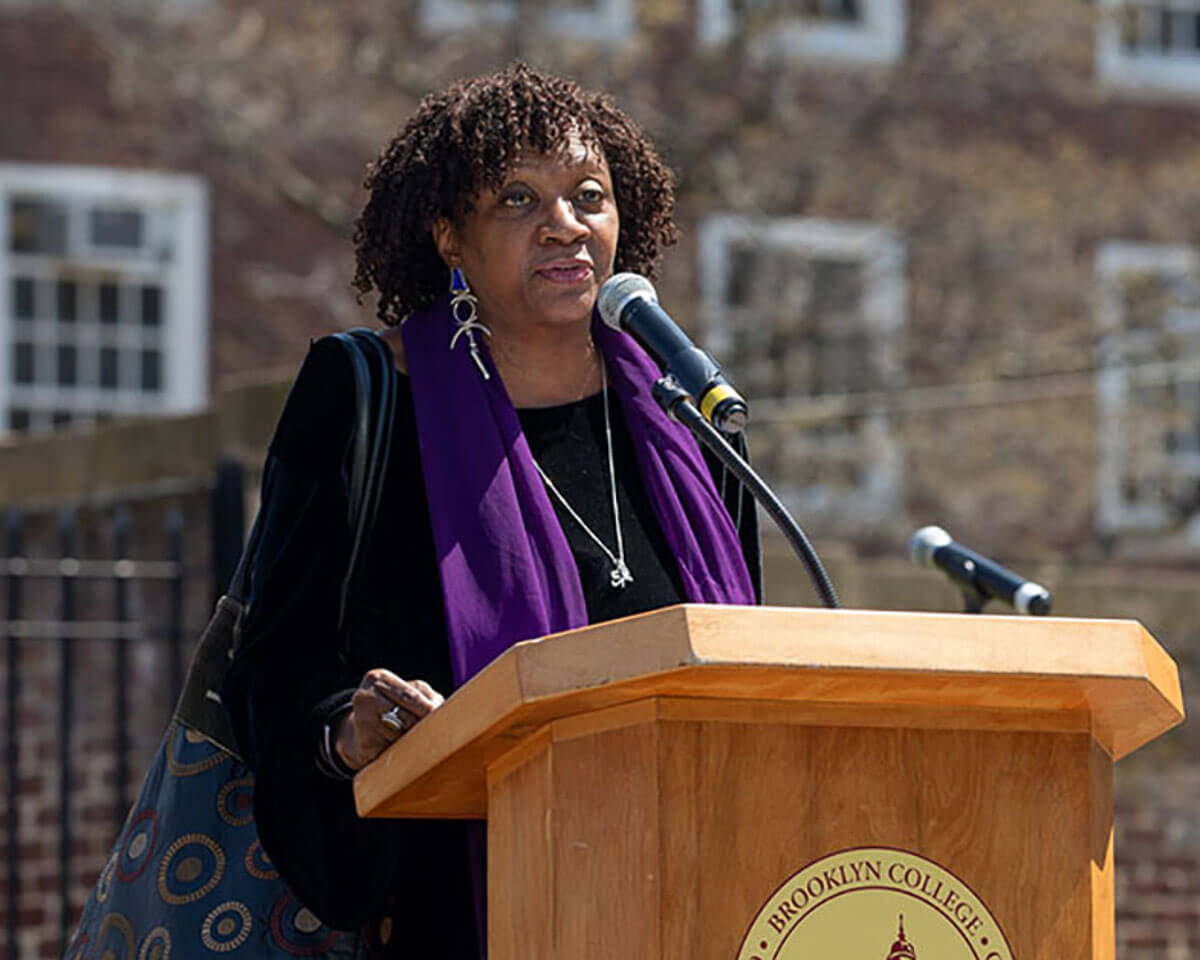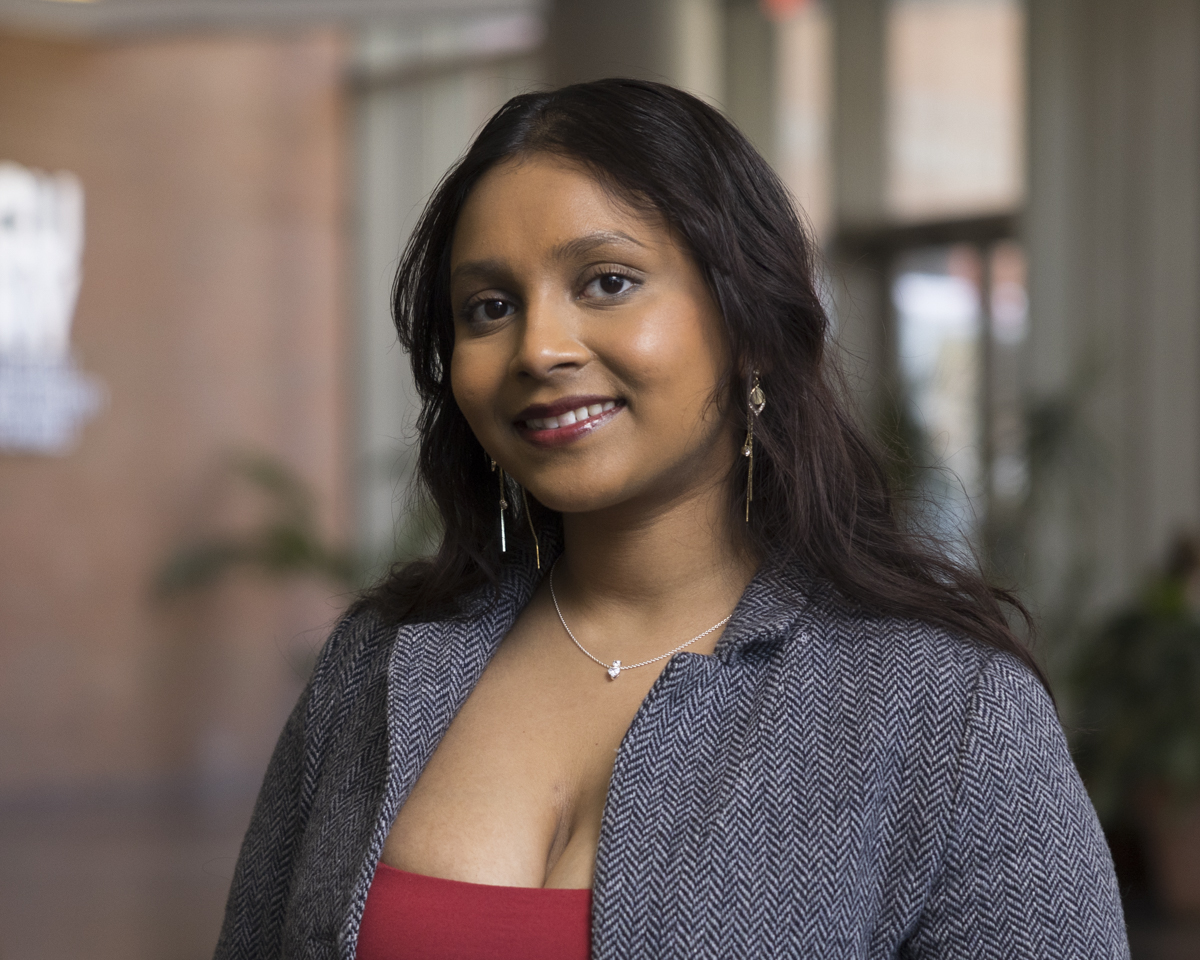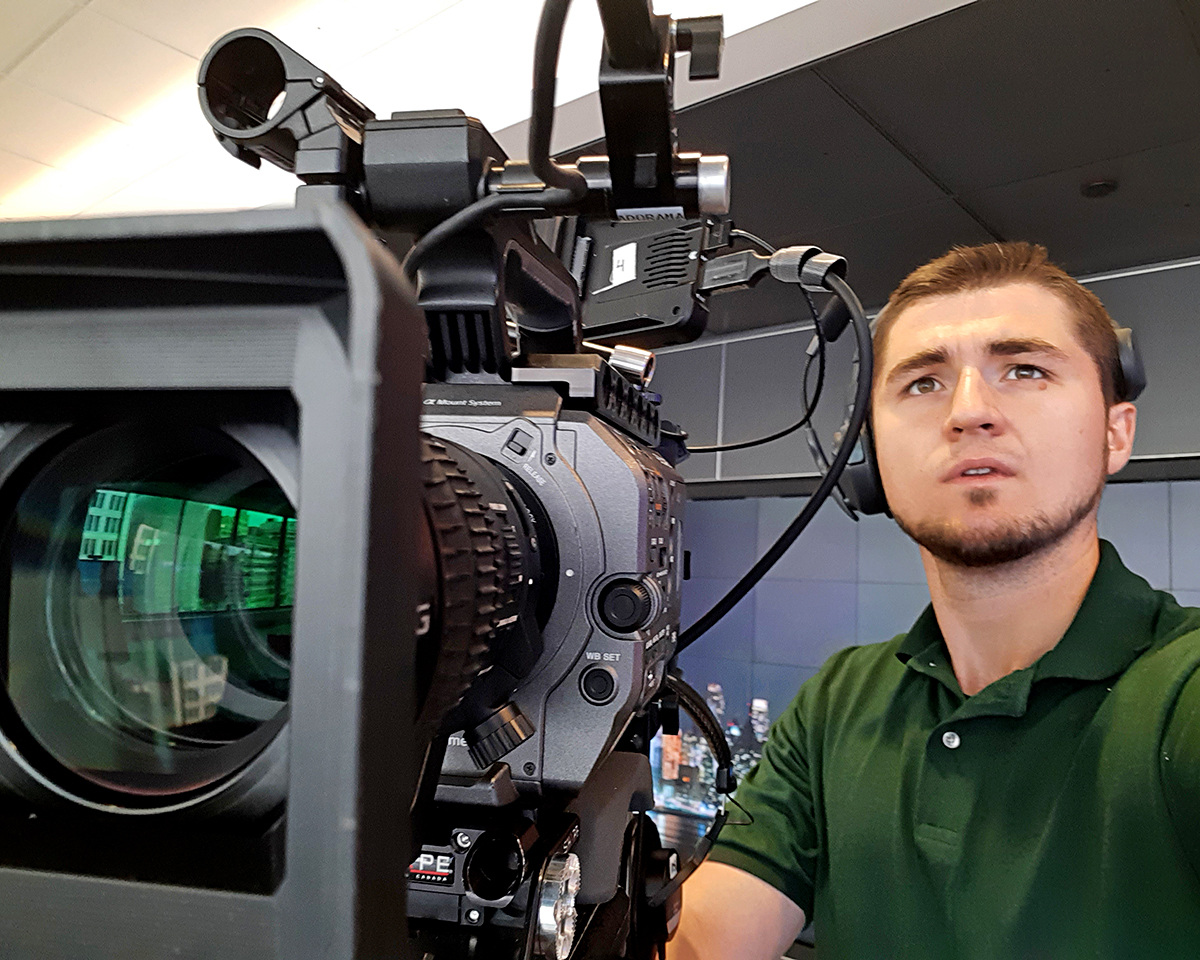Monique Ngozi Nri ’21 was the “little girl who went to parties and read books under the table while the others were playing,” she recalls with a laugh. So it was no surprise that she grew up to be a woman deeply passionate about literature and poetry.
She is currently an adjunct English instructor and the director of the college’s CUNY EDGE program, which helps students receiving public assistance achieve academic excellence, graduate on time, and find employment after college. But she has always lived something of a double life, working in the world of student affairs by day and singing and reading her poetry with her husband’s jazz band. She’s also done some freelance literary reviews and has interviewed poetry giants Jayne Cortez, Maya Angelou, and Ntozake Shange.
Still, Ngozi Nri didn’t feel fully legitimate as a poet. She had undergraduate and master’s degrees from the University of Bristol in England in politics and sociology, economics, and public policy. She had even published some of her poetry. But she didn’t have anything that gave her the same academic seal that other poets have.
“I’m especially critical of myself,” she explains. “I didn’t want to be out there without the degree.”
One day, when she was sitting at her desk in her Boylan Hall office and someone asked for directions to the open house for the English Department’s M.F.A. programs, she decided to take a gander herself. The next thing she knew, she was enrolled in the M.F.A. in Creative Writing program.
A series of poems she began as an exercise for her master’s degree ended up taking on a whole new life, helping her make sense of the tumult that COVID-19 wrought and landing her a prominent role last spring in the college’s commemoration of those lost during the pandemic.
BC: What is your background and what sparked your love of poetry and literature?
MNN: I was born in England and went to Nigeria when I was five months old and then back to England when I was nine. My mum is from Barbados and my dad from Nigeria.
My mother would tell stories of me as a kid: I was shy. I got bullied at school. I guess because of that I just always preferred to be in a book. From that came my love of reading. But all my life, I went to predominantly White schools where I didn’t know any Black writers. I remember reading the book by Paule Marshall [’53], Brown Girl, Brownstones [Random House, 1959], when I was in the equivalent of high school. She was the first Black woman writer I knew.
BC: What brought you to the States?
MNN:I met my husband, Ahmed Abdullah, in 1991 and moved here with him the next year. When I first came to New York, I worked at The Pacific College of Oriental Medicine for 8 years then The New School for 14 years as director of international student services. Then I went to Lehman College where I ran a program for sophomores.
We eventually moved to Flatlands in Brooklyn, and we used to drive past the college and I’d say, “I wish I could work there.”
BC: You began the M.F.A. program in fall 2019 and then of course the next semester, COVID-19 shut down in-person classes. You ended up writing a whole poetry series about it. What was that like?
MNN: My husband’s first cousin, Teelah, passed away from COVID. Early in the pandemic, my aunt passed away from flu-like symptoms. And I had a few other people close to me who left the planet because of COVID. My daughter Tara was home from college. My whole experience working with students was turned upside down.
And then there were all the people from the college who passed away. It was quite shocking. That’s how I came to write a series of poems which were about different aspects of my experience. Writing is my therapy. It’s my way of coming to terms with things.
BC: How did the structure of the program help you process everything that was going on?
MNN: One of the great things about really studying your craft is learning about different forms. I wrote a series of four poems that I called “Covidium,” about different aspects of my experiences with COVID. It’s very interesting what happens when you try to fit ideas into a form. It creates something other than what you necessarily began with. It’s like pouring liquid into a vessel.
BC: You also tragically lost your mother just before you graduated. How did that change you?
MNN: My mum Celeste died on Mother’s Day 2021, the day of my thesis reading. My thesis was dedicated to her. She passed away about 30 minutes before the reading. I had just sung with her her favorite hymn, “Abide With Me.” Her death has had a profound effect on me. She always wanted me to publish a book so I’ve been trying to really focus this summer on seeing if I can get the book finished. Hopefully I will publish the book and be recognized in the real world as a poet.



